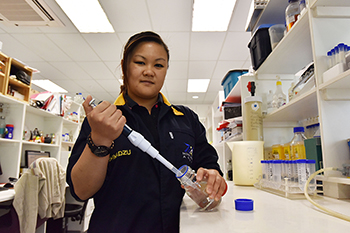Latest News Archive
Please select Category, Year, and then Month to display items
![]()
Misleading information was posted on a Twitter page today (17 May 2018) regarding a sexual harassment case which the former employee linked as the reason for her dismissal by the University of the Free State (UFS).
The UFS has zero tolerance towards sexual harassment, sexual assault, and the victimisation of individuals. In this particular case – which was reported on social media today – the university confirms that a sexual harassment case was indeed reported by the employee, and the university’s disciplinary process was followed. The complainant accepted the outcome of the disciplinary process without any reservations.
Sometime later, the university discovered that the complainant had falsified material information on her CV, which she used to apply for the position in which she was appointed. The termination of the complainant’s employment is based on fraudulent action and misrepresentation.
As part of its drive to eradicate fraud and corruption, the university initiated disciplinary action according to its policies and procedures.
It is unfortunate that the complainant used her sexual harassment case, which the UFS addressed to her satisfaction, to now justify her fraudulent actions.
Released by:Lacea Loader (Director: Corporate Communication and Marketing)
Telephone: +27 51 401 2584 | +27 83 645 2454
Email:
news@ufs.ac.za |
loaderl@ufs.ac.zaFax: +27 51 444 6393
The impact of personal care products on water resources in the Free State
2015-12-14

Jou-an Chen
Photo: Charl Devenish
|
Water is of the utmost importance in personal hygiene. Most people can hardly have a day go by without taking a shower in the morning and at night. However, it is this very habit that is increasingly polluting the water resources in South Africa.
Contaminants found in pharmaceutical and personal care products have been accumulating in water masses in recent years. These contaminants especially refer to hormones in medication, as well as colouring agents and fragrances used in soap, shampoo and body lotions.
“Little information and data are available on the prevalence of these contaminants, and on how high the level of pollution really is,” says Jou-an Chen, researcher in the Department of Microbial, Biochemical and Food Biotechnology at the UFS.
Her research particularly focuses on the prevalence and impact of those contaminants.
“Because these substances have not been properly investigated, we are not sure how widely it occurs and whether it is harmful to the environment. It was precisely the lack of information that has inspired me to investigate further.”
“If we could identify the contaminants and what it is doing to the environment, it could make a valuable contribution to directives on water quality standards.”